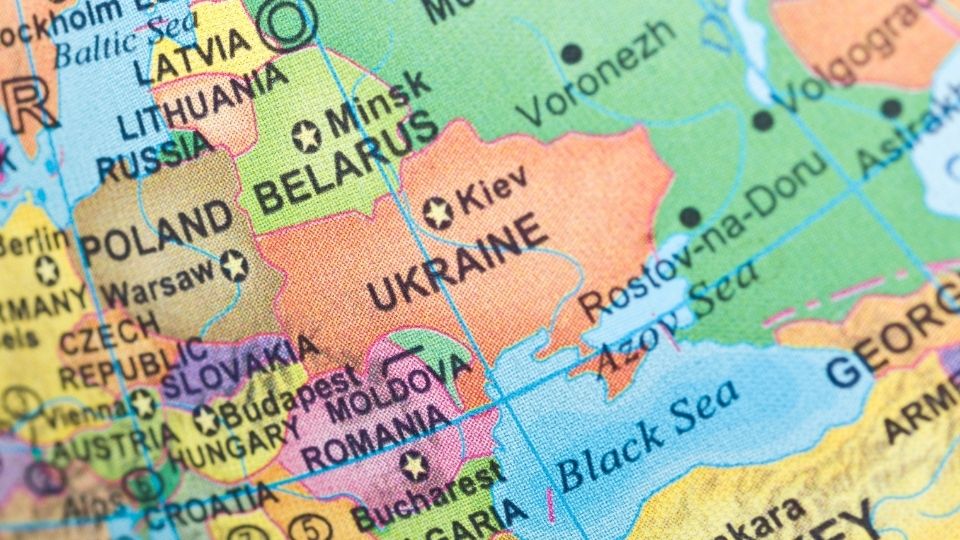
In a context of economic instability, the trend is to diversify strategies. With a strategy to become independent from Asian countries, many French companies are seeking to refocus on the European market. Indeed, in order to escape the insecurity linked to the current economic climate, why not try to get closer to the national territory, while combining quality, turnover, cost optimisation and innovation? Your export, sourcing, relocation or R&D centre setting up procedures can take place on our continent. According to a study by AgileBuyer for the National Purchasing Council, 25% of French companies want to relocate their production to France or Europe. But production and outsourcing on French territory are expensive. So what can be a solution?
The potential and opportunities of Eastern European countries are too often ignored. So what are the advantages of these territories in your international strategies?
1. A growing market open to expand your export
You are looking to diversify your markets and increase your turnover?
France exports 52% of its products within the European Union, but the Eastern European countries are too often forgotten. Yet the potential is enormous. The Eastern European market represents a real attraction, with a population of over 300 million inhabitants, including 144 million in Russia, 42 million in Ukraine, 38 million in Poland and 19 million in Romania. Since 2004 and 2007, the Baltic States, the Czech Republic, Poland, Bulgaria and Romania are members of the Schengen area. And in 2017 a free trade agreement between Ukraine and the European Union came into force, making trade agreements and administrative procedures considerably easier. These agreements mean customs duties exemption for multiple categories of products between the member countries and Ukraine. This means that the movement of goods, services and capital faces very few obstacles.
These are countries that have been booming economically since they entered the market economy system. Their liberalisation is still in progress and is rapidly catching up with the older economies of Western Europe. Estonia is the eighth freest country in the world in 2021 according to the Index of Economic Freedom. Poland is growing at around 3% a year and by 2020, Czech GDP per capita ($40293) has caught up with Spain ($38143) and Italy ($40065), according to IREF Europe.
French products are very popular in Eastern Europe due to the value, quality and prestige associated with them. Through the “Made in France” label, the French trade shines.
The Eastern European market has a particular attraction for French mass-market products, high technology, luxury goods and especially perfume.
‘Made in France‘ is associated with luxury and taste. According to a study by the Direction Générale des Entreprises published in 2013, the value associated with French products is mainly linked to “the guarantee of aestheticism, originality and style”. The reputation of major French luxury brands such as L’Oréal, Chanel and Dior has created a fertile breeding ground for SMEs active in this sector.
Michelin, L’Oréal, Yves Rocher, Pileje and La Roche Posay are already successfully exporting to the East. According to Bpi France, 100% of the CAC 40 companies are present in Poland.
Eastern European countries represent a real sales potential for French exporters.
2. Sourcing & production
Since February 2020, the jolts of the crisis have caused temporary closures of factories and workshops in Asian supplier countries. As a result, supply chains and logistics have been slowed down, time to market has been extremely long and European companies have felt their dependence on Asia. How then to escape these risks while keeping the profitability of production and competitive prices?
The trend is towards relocation and diversification of sourcing. What better choice than to turn to Eastern European countries?
The term sourcing refers to the search for suppliers or candidates (in the field of recruitment), in order to find the best value for money.
Sourcing in Eastern Europe has many advantages. These countries combine accessibility, security and potential. Here are the advantages of a sourcing strategy in Eastern Europe.
- The geographical and cultural proximity is a real advantage. Indeed, the time difference is minimal and the main capitals are accessible in 2 or 3 hours by plane. The state of mind is similar to that of France. The maintenance of a stable supply chain is ensured by the fact that most countries are members of the Schengen area or at least partners in bilateral trade agreements.
- Geographical proximity reduces environmental impact, as supply chains are shorter. According to the AgileBuyer survey, 64% of French companies surveyed want to reduce their environmental impact by increasing the proportion of made in France products. This is not incompatible with your sourcing strategies abroad. Read more.
- Eastern European countries are a godsend because production costs are lower there. Wages are lower than in France and increasing robotization increases the efficiency of installations.
- The workforce is skilled and the industrial facilities and infrastructure are modern and automated.
They are predominantly industrial economies, but also agricultural, IT and service economies. The main areas of production are: agriculture (grain, dairy and livestock), metallurgy, including car manufacturing and shipbuilding, processed foods, textiles, the service sector (tourism, digital services) and the chemical industry.
Each country has its own specificities and strengths. For example, Ukraine is the second largest exporter of grain after the United States. The Czech Republic and Hungary produce iron and steel, Poland coal. These countries represent an alternative for the supply of raw materials or semi-finished products. It is also possible to find subcontractors producing under white label, which you can then market under your own brand name. This practice is particularly common in the automotive and textile sectors.
Some examples of companies manufacturing in Eastern Europe:
- Textile sector: Decathlon, for example, has white label suppliers.
- Automotive sector: Renault, Ford and Michelin have production facilities in Romania and Russia
- Aeronautics sector: Airbus has a helicopter factory in Transylvania, Safran is established in Russia.
- Agricultural sector: the French agricultural company Agrial has a joint project with the Russian meat producer Cherkizovo Group
Other examples of French companies: AirLiquide, Leroy Merlin, Bonduelle, Engie, Danone.
3. Innovation, IT & Digital
In a digitalising world, keeping up is essential. During the pandemic, many companies switched to a teleworking system. The advantage of this procedure is that employees can be based abroad. This model can be maintained once the crisis is over, making outsourcing projects increasingly simple and realistic.
We often talk about industrial outsourcing, but you can also outsource your IT & Digital services. According to Global Findings, the IT sector is one of the most suitable sectors for outsourcing.
To diversify your international IT outsourcing strategy, dare to take advantage of the opportunity offered by Eastern European countries, and in particular the Baltic States. Indeed, these countries are considered as forerunners of the all-digital world. Estonian administrative procedures are available online 24/7. The IT talent pool of these countries is highly ranked in the World Economic Forum’s index.
Eastern Europe is a growing technology hub and is gaining influence on a global scale. This territory is a reservoir of specialists and highly qualified professionals. In fact, more than 700,000 certified IT specialists work in Ukraine, Russia and Belarus. According to the GBKSOFT study, European professionals outperform their Asian colleagues because they are better trained. Every year there are a large number of graduates in mathematics, technological sciences and engineering.
The teams are specialised in high-tech systems, telecommunication, cyber security, high-performance software development etc. For example, Estonian companies are leaders in the development of blockchains, connected networks and clean tech.
Innovation clusters are flourishing in the east of the continent. In Ukraine, the Unit.City innovation park offers an ecosystem of start-ups, R&D centres, international private and public investors and soon two universities. This place hosts outsourcing strategies or creates added value through high-tech projects. Built on the model of California’s Silicon Valley, the infrastructure resembles a small town, bringing together the best conditions for boosting innovation. In Russia, a similar structure can be found in Skolkovo, not far from Moscow. Thousands of companies and start-ups are co-developing in this research and development centre. The collaboration between transnational and multidisciplinary players is a major asset. Finally, the Baltic States are also a host country for innovative projects. There is a large number of service centres in Lithuania and the Tehnopol Science and Business park in Estonia, linked to the Tallinn University of Technology and a start-up incubator. Dell, Microsoft and Huawei have already chosen to set up their R&D centres within such structures.
Google announced in June 2020 that it would invest USD 2 billion in a data centre in Poland to manage cloud services, which would create a new centre to serve European customers.
Microsoft has announced a USD 1 billion investment in Poland for a large-scale data centre, as well as support for skills development and digital transformation.
Conclusion
Eastern European countries are full of opportunities for French companies seeking to diversify their internationalisation strategy. Indeed, the market welcomes French exports, the good quality-price ratio makes it a target for your sourcing and production projects, and finally, the worldwide recognition of their skills in the IT & Digital field is not insignificant in a commercial system that is becoming digital.
About us
InterTrade Consulting is an international development consulting agency specialising in Eastern Europe. We are an approved operator of Business France and part of OSCI. Our company can help you develop, manage and coordinate your projects, find a reliable partner, set up a dedicated team hosted by a local company (outstaffing), open a subsidiary, negotiate your contracts, recruit locally, meet experts and government representatives on the Ukrainian, Belarusian, Russian, Polish, Serbian, Romanian and Baltic markets…
Contactez-nous pour avoir plus d’informations : contact@intertrade-consulting.com




